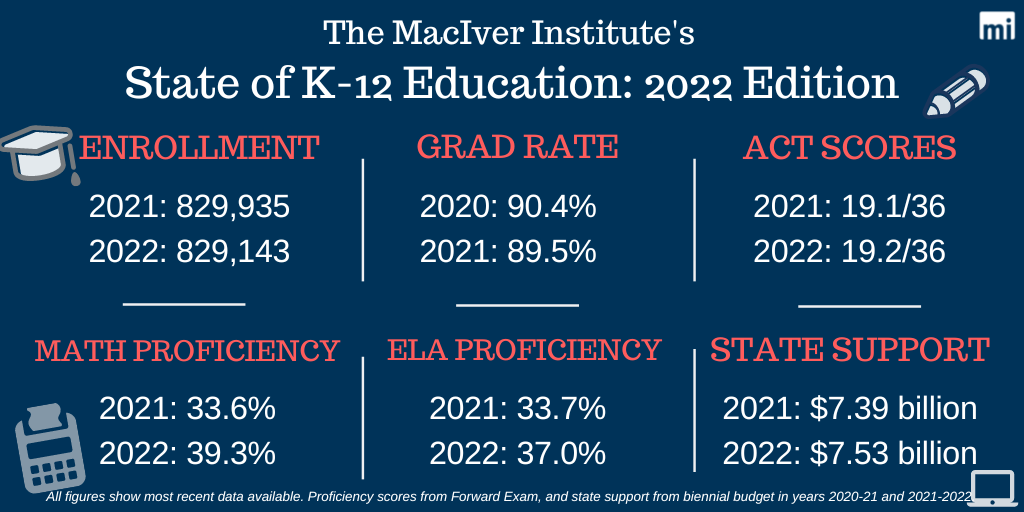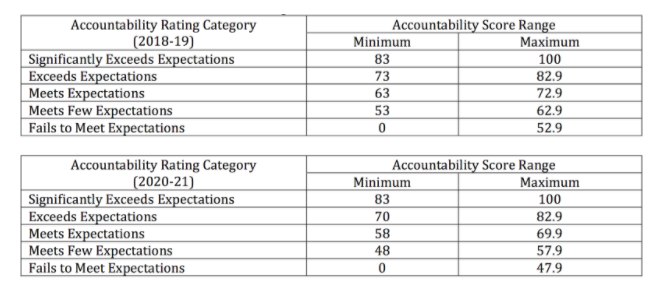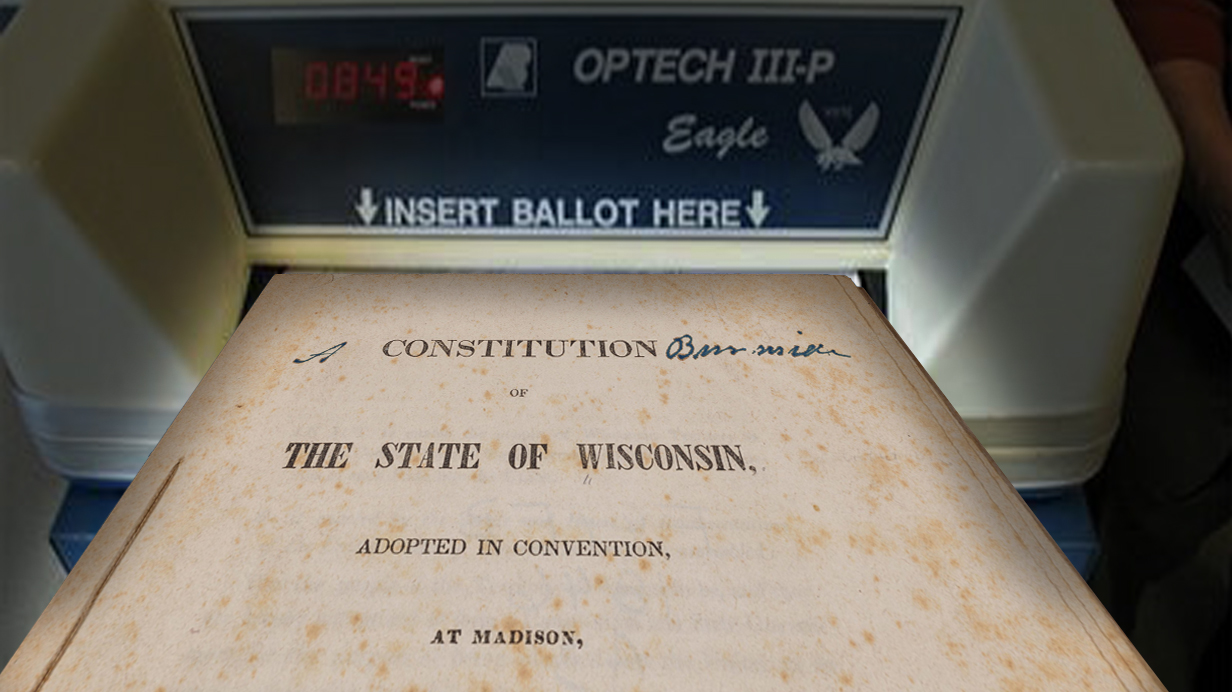
Validity of Rankings in Question
Evers Heavily Used US News Rankings in his Campaign
Examples of Data Manipulation are Proliferating
In September, we wrote about the disconnect between US News education rankings and the performance of the schools they rank.
It was clear to observers in Wisconsin that something was amiss when the news outlet ranked Wisconsin public schools higher after student achievement scores plummeted. US News boosted our ranking from 18th to 8th while our test scores dropped to the point where only about a quarter of students can perform English or math at grade level.

The discrepancies weren’t just limited to the K12 rankings. Faculty at a major university raised concerns about the accuracy of the data, and thus the rankings themselves, after noticing the data US News cited didn’t reflect the reality at the college.
Last week the law schools at Yale, Harvard, Georgetown, UC Berkeley and other major law schools announced they would no longer participate in the rankings, voicing complaints about the “flawed system” and hopes the methodology will be overhauled. It’s likely other schools will follow, although it’s likely others will hope to boost their own prestige by moving up in the rankings with so many top schools out. .
US News said that the schools’ pulling out of the rankings was against accountability, transparency, and equity. Which might be true if the rankings had been based on fact.
Data Manipulation is Proliferating
Data manipulation is increasingly being used to control public opinion. Sometimes the data is hidden, sometimes it’s carefully curated, and sometimes it’s completely misrepresented. The end result is the same: people aren’t getting accurate information.
Meaningfully measuring performance of public – or private – organizations depends on a commitment to ethical and transparent sharing of accurate data and proper external vetting. As we’ve seen, US News had little interest in the accuracy of the data they were provided, and did nothing to verify it, rendering the rankings meaningless except as a measure of which schools did best at rigging the system in their favor.
Department of Public Instruction
But we’ve seen the same thing here in Wisconsin. The Department of Public Instruction has cooked the books on school report cards, rending them virtually meaningless as well. We’ve reported on DPI changing the curve making it easier for schools receive a passing grade.
DPIs data manipulation means that even though we have more than half of students failing basic subjects, 95% of schools meet, exceed or significantly exceed expectations according to DPI’s twisted data.

Department of Health Services
And of course during the pandemic, getting accurate data was next to impossible. The Department of Health Services claimed in in early 2021 not to know the living situation of nearly half of those who died from COVID. Later, they attributed a thousand of those “unknowns” to nursing home residents. Even then, they still had no idea the living situation of 1,700 people over a quarter of those who died.
Evers dismissed the failures to report accurately saying “it wouldn’t have made any difference,” and though his DHS said they would try to reconcile the data, the numbers got worse.
Then they took the dashboard down.
Similarly, DHS took down the dashboard that showed detail on the vaccination numbers and rates broken down by county and race when it became clear that their drumbeat on racial inequities might be undermined by the facts.
Now the only way to get any of those datapoints is to do an open records request of the department and wait for what may or may not be accurate data.
Federal Pandemic Aid
Wisconsin’s COVID dashboard is laughable compared to those launched in other states. Illinois, hardly known for a stellar reputation in government transparency or accountability has a searchable dashboard where the public can track the disbursements of federal pandemic funds by agency, individual and purpose – down to the penny. By contrast, the Evers dashboard lets us see how much was allocated to counties in several categories like “movie theatre grants,” “lodging awards” and “live entertainment venue awards.”
There is no more transparency in the federal dollars that went to local governments. We’ve reported on the Dane County awards to the violence-promoting group Urban Triage, which are marked by false information provided to elected officials, and millions in mysterious “administrative” charges.
Veterans Homes
While the Veterans Home at Union Grove is facing scrutiny and lawsuits over failures in patient care, and were in the top 5 veterans homes in the nation for fines and violations. The state Department of Veterans affairs continues to claim on their website that “Wisconsin Veterans Homes are among the best in the country, boasting an excellent safety record and the highest quality of care ratings” while Medicare gives Union Grove the lowest rating possible.
Staffing at the home has been supplemented by millions of dollars spend on temporary staff, but how much, and to what extent temps are being used is nearly impossible to tell, and internal documents reveal leadership in the department doesn’t seem to have a handle on the information.
Redistricting
We also reported this year on the quickly hushed data manipulation scandal where the hugely impactful Princeton Gerrymandering Project was outed by staff for having doctored data to benefit Democrats in state redistricting cases.
More Data=More Manipulation
We’ve seen other fudging the years (remember the UW System crying poverty while forgetting to mention their secret $1.7 billion slush fund?) and these are just a few of the more recent examples. Governor Walker had made a commitment to transparency with the Open Book website allowing the public to look up contract spending, a website to track open records fulfillment and agency performance metrics posted on state websites. He was honored by the Wisconsin Freedom of Information Council (which made Scot Ross really cranky) for his actions improving government openness.
Governor Evers dumped the public records dashboard (some requestors have to file lawsuits just to get basic open records requests filled), as well as agency performance dashboards, and as we’ve seen, his administration has been rolling back transparency for years.
Good data and good data sharing is key to good government. While the session ahead promises to have the challenges usual in divided government, accountability and transparency in data that shows the public how (and how well) their tax dollars are being spent is something that should be top of the list for both sides.




